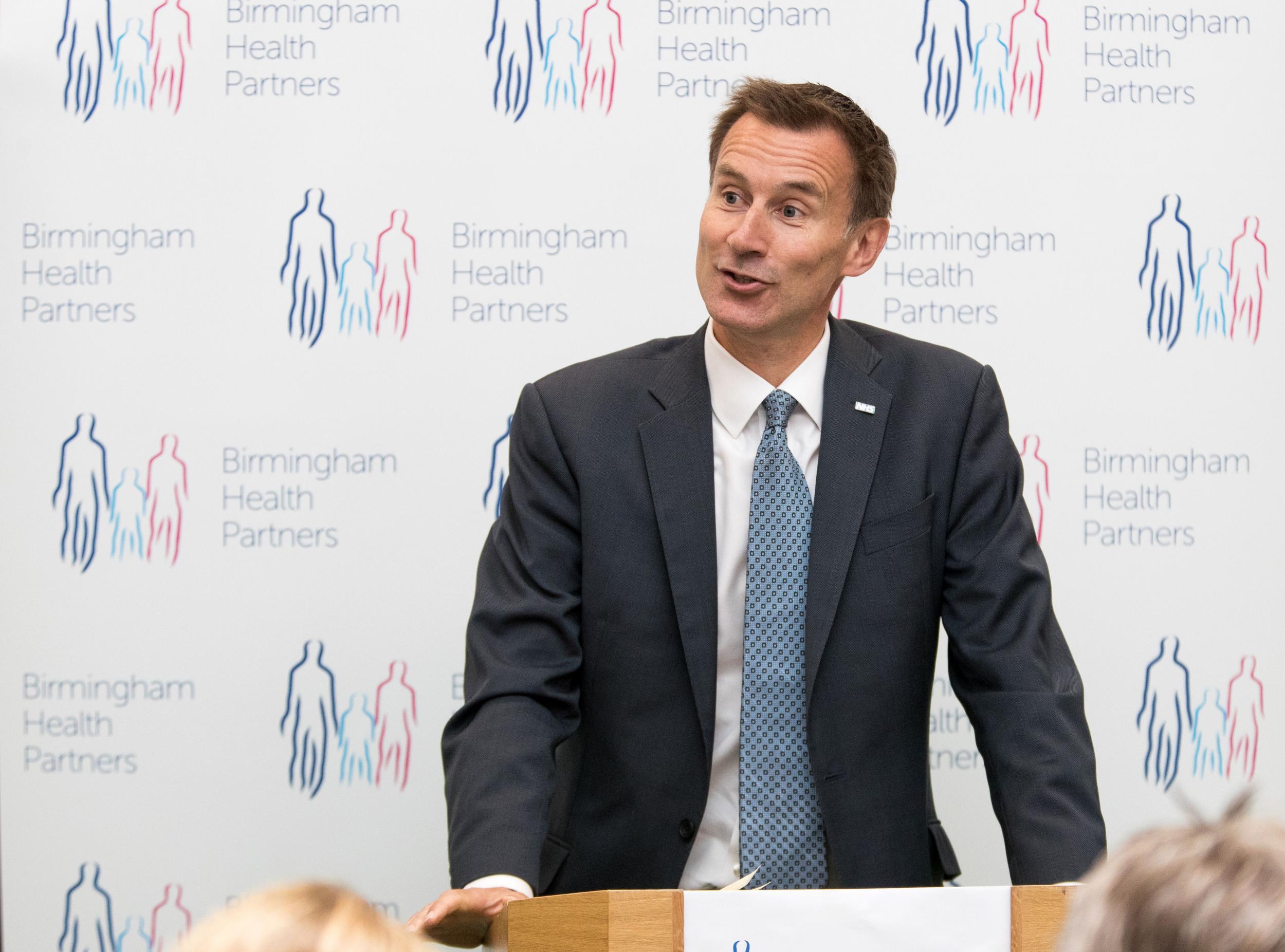Boris Johnson is right that ‘it would be a fine thing’ if NHS spending were to rise
Of course, there will be no Brexit dividend to pay for it, but we should be grateful to the Foreign Secretary for making the case for a better-funded health service

Boris Johnson, the Foreign Secretary, performed a public service in his Daily Telegraph article proclaiming the virtues of a bold and glorious Brexit. By repeating the untrue claim that, by leaving the European Union, “we will take back control of roughly £350m per week”, he reminded us of the pledge on the side of the Vote Leave bus.
It was a disgraceful piece of cynical campaigning, but undeniably effective, not least because Mr Johnson and Michael Gove, the leaders of Vote Leave, suggested that the money should go to the NHS instead. In his article, Mr Johnson repeated this proposal, in carefully worded form: “It would be a fine thing, as many of us have pointed out, if a lot of that money went on the NHS.”
One good thing about Mr Johnson’s leadership bid is that it draws attention to the long-drawn-out crisis in the health service. Indeed, it may be that the Foreign Secretary decided to repeat the £350m figure – so damaging to his reputation with anyone who can count – because he has been frustrated in arguments with fellow ministers for higher NHS spending. Kremlinologists will have noticed that Jeremy Hunt, the Health Secretary, was one of the few colleagues he chose to mention in his article.
Indeed, it is puzzling that neither of the two main parties has taken the line that last year’s referendum was a vote for higher NHS spending as well as a vote against EU membership. Jeremy Corbyn was said to have considered adopting this position but drew back. In view of his willingness to spend vast amounts of money on the lesser priority of abolishing tuition fees, this is surprising.
Of course, it would be absurd to decide NHS funding by reference to an arbitrary and untrue figure on the side of a bus. And the truth is that £350m a week is a larger amount of extra funding than most of the ardent advocates of socialised medicine would demand. It is £18bn a year, which is 12 per cent of NHS spending in the UK. But it would be possible to include increased funding for social care in the total and then to use the symbolic power of the Vote Leave pledge to mobilise public support for higher spending.
Equally, it is evident that such spending could not be funded out of “savings” from our departure from the EU. The actual figure for our net EU contributions is about half the £350m a week. In any case, we have to “settle our accounts”, as even Mr Johnson acknowledges, in order to leave. In addition, we are likely to continue making annual payments to the EU after Brexit for at least a two- or three-year transition period. After that, most of the money saved is likely to be swallowed up by the costs of customs and border checks.
However, the money is needed by the NHS in any case. Since 2010, NHS funding has only just been kept ahead of inflation, while falling behind the demands of an ageing population and technological change. Since 2013 the pay cap for NHS staff means that they have had their pay cut by stealth, year on year. The NHS unions united this week to demand – modestly and realistically – a 4 per cent pay rise, at a time when inflation is running at nearly 3 per cent.
Now Sir Simon Stevens, the chief executive of NHS England, has warned the service to brace itself for a “heavy” flu season this winter. Last winter, the Red Cross described the state of the NHS as a “humanitarian crisis”: this year the situation is likely to be worse.
More public spending is needed. Brexit is not the magic money tree that Mr Johnson and Mr Gove pretended it would be. But we should be grateful to the Foreign Secretary for making the case for higher public spending, which must be funded by higher and fairer taxes.

Join our commenting forum
Join thought-provoking conversations, follow other Independent readers and see their replies